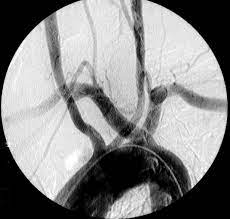Dysphagia is a condition that affects a person’s ability to swallow properly. It can be caused by various factors, including neurological conditions, cancer, and injury. People with dysphagia often have difficulty consuming enough food and getting the nutrients that they need to maintain a healthy diet. This can lead to malnutrition, weight loss, and other health problems. But with the right strategies and support, it is possible to maintain a balanced diet if you have dysphagia.
Understanding the Connection between Dysphagia and Nutrition
When you have dysphagia, it can be challenging to eat enough food to meet your nutritional needs. You may have trouble swallowing certain textures or types of food, and you may need to eat smaller, more frequent meals. Additionally, you may have to avoid certain foods that can cause choking or other complications. All these factors can make it difficult to get the necessary nutrients for good health and wellbeing.
Why a Balanced Diet is Important
It is important to understand that proper nutrition is essential for managing dysphagia. A well-balanced diet can help you maintain your weight, improve your energy levels, and prevent complications. Plus, good nutrition can help to strengthen your immune system and improve your overall quality of life.
Tips for Maintaining a Balanced Diet with Dysphagia
Some tips and strategies that can help you maintain a balanced diet despite dysphagia are as follows:
- Work with a dietitian or nutritionist: A professional can help you come up with a diet that meets your specific needs while providing all the necessary nutrients. They can also give you advice on how to prepare and eat your food safely and comfortably.
- Try thickening agents: Thickening agents can be added to liquids to make them easier to swallow. You can get more info on thickening agents and how to use them in drinks and other liquids here.
- Choose nutrient-dense foods: Rather than focusing on quantity, focus on the quality of the food you eat. Try to eat more foods that are high in nutrients and low in calories. For example, you may want to eat more lean protein, whole grains, fruits, and vegetables.
- Eat smaller, more frequent meals: Eating smaller, more frequent meals can make it easier to swallow and digest food. It can also help you with maintaining a more consistent energy level throughout the day.
- Modify food textures: Some people with dysphagia have difficulty swallowing certain textures of food. You can modify the textures of food by blending, mashing, or pureeing them. This can also be useful for safely and easily eating foods that are normally hard to chew and swallow.
- Use assistive devices: There are a variety of assistive devices that can make it easier to eat and drink, such as special utensils, straws, and cups. Find one that works well for you.
- Stay hydrated: It’s important to stay hydrated, especially when you have difficulty swallowing. It’s also a good idea to drink fluids 30 minutes before or after meals to avoid feeling full during meals. However, avoid drinking during a meal, as this can make swallowing harder.
Living with dysphagia can make it difficult for you to get the nutrients you need from your diet. But with the right strategies, you can protect your health.
Apart from that, if you are interested to know about How To Take Care Of Our Health then visit our Health category.











